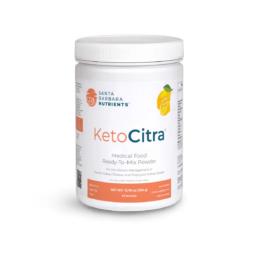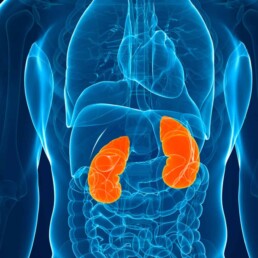Understanding the role of glutathione, the master antioxidant, is key to ensuring kidney health. One of the leading lines of defense in our body against oxidative stress and ferroptosis, glutathione plays a pivotal role in keeping our kidneys in optimal health. This blog post will delve into the connection between selenium and glutathione, the damaging effects of oxidative stress and ferroptosis on kidney health, and how we can support our body’s glutathione levels, including the use of liposomal glutathione.

Selenium: A Key Player in Glutathione Levels
The trace mineral selenium is an integral part of the enzyme glutathione peroxidase (GPx), which is central to our body’s antioxidant defense mechanism. GPx combats oxidative damage by neutralizing harmful reactive oxygen species (ROS). ROS are highly reactive, unstable molecules our bodies produce during normal metabolism and in response to environmental stresses. They can cause damage to cells if they aren’t properly controlled by our natural antioxidant systems. Keeping a balanced selenium intake is essential to maintain healthy glutathione levels, which is crucial for robust kidney health. To read more about the role of selenium in protecting the kidneys from oxidative stress, read this blog.
How Oxidative Stress Affects Your Kidneys
When ROS production surpasses your body’s capacity to neutralize them, oxidative stress occurs. This condition leads to inflammation, cellular damage, and, in extreme cases, cell death. Kidneys are especially prone to oxidative stress due to their high energy needs and robust blood supply. Over time, oxidative stress can cause kidney damage, and worsen existing conditions, leading to fibrosis (scarring). This will lead to faster progression of chronic kidney disease (CKD).
Join us to end the kidney disease epidemic and receive the FREE Report “5 Pitfalls to Avoid When Caring for Kidney Patients”
Ferroptosis: An Emerging Concern for Kidney Health
Ferroptosis is a newly identified form of regulated cell death distinguished by iron accumulation which leads to increased ROS. ROS then interacts with lipids in the cell membranes causing cellular death. It has significant implications for various health conditions, including kidney damage. Glutathione aids in preventing ferroptosis by neutralizing ROS and sustaining the function of the GPx4 enzyme, thereby protecting cells from lipid peroxidation. You can read more about it here.
Bolstering Glutathione Levels for Optimal Kidney Health
You can see now that supporting glutathione is crucial for better kidney health. Here are some ways to boost the body’s glutathione levels:
- Selenium supplementation: Ensuring proper selenium intake can support glutathione levels and fortify kidney health. Brazil nuts, fish, and whole grains are excellent dietary sources of selenium. Patients with kidney disease should aim for 200 mcg of selenium daily, either through high-quality supplements or diet. This can be easily accomplished by eating only two Brazil nuts a day.
- N-acetylcysteine (NAC): NAC is a glutathione precursor that can enhance its levels in the body. Studies suggest that NAC supplementation can positively affect kidney function in CKD patients. There isn’t a standard dose for NAC, but clinical studies for various conditions have used doses ranging from 600 to 1800 milligrams per day, typically divided into 2 or 3 doses. We use Pure Encapsulation NAC 600 mg capsules at a dose of 1200 mg twice a day. However, it’s essential to start with a lower dose to assess tolerance and consult an Integrative or Functional medicine-certified provider.
- Liposomal glutathione: Liposomal glutathione, a form of glutathione encapsulated in liposomes for improved absorption, may be more effective in boosting glutathione levels than other forms, according to some studies. This study showed that doses of 500-1000 mg were sufficient to reduce markers of oxidative stress. However, it’s best to follow the manufacturer’s instructions and consult an Integrative or Functional medicine healthcare provider
- Antioxidant-rich diet: Food is medicine. Consuming a diet abundant in fruits, vegetables, and whole grains can provide various antioxidants that support glutathione levels and overall kidney health.
The bottom line
Boosting glutathione levels is key to maintaining kidney health. Understanding the roles of selenium, oxidative stress, and ferroptosis allows us to take active steps in protecting our kidneys. By supplementing with selenium, NAC, or liposomal glutathione and adopting a diet rich in antioxidants, we can ensure optimal glutathione levels for overall kidney health.





